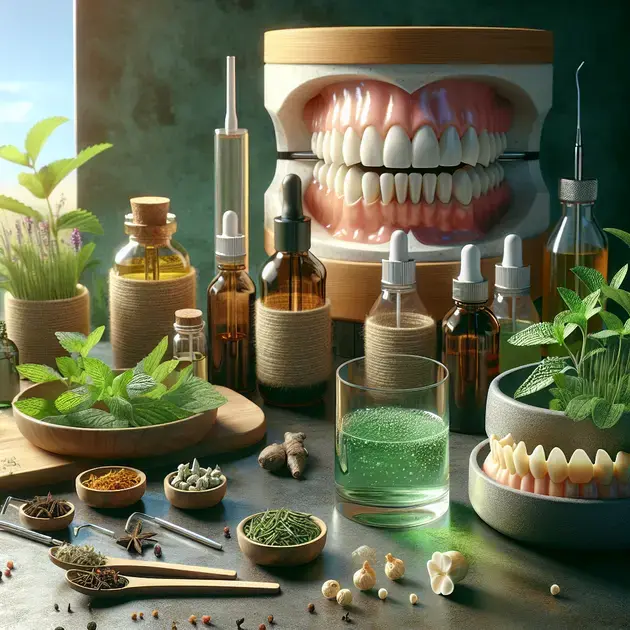Periodontitis is a serious gum infection that damages the soft tissue and destroys the bone that supports your teeth. If left untreated, it can lead to tooth loss and other health problems. In this post, we will explore the most effective medication options for treating periodontitis and improving oral health.
Recent studies have shown that a combination of antibiotics and antimicrobial mouth rinses can be highly effective in controlling the bacteria that cause periodontitis. These medications can help reduce inflammation, prevent further damage, and promote healing in the gums. Let’s take a closer look at some of the best medication options available for managing periodontitis.

Antibiotics and Antimicrobial Mouth Rinses: A Winning Combination
When it comes to treating periodontitis effectively, a combination of antibiotics and antimicrobial mouth rinses can be a winning solution. Antibiotics are often prescribed to combat the bacterial infection that causes periodontitis, while antimicrobial mouth rinses can help reduce the bacteria in the mouth and promote healing.
How to Use Antibiotics:
Your dentist or healthcare provider may prescribe antibiotics to help treat periodontitis. It is essential to follow their instructions carefully and complete the full course of antibiotics, even if your symptoms improve before you finish the medication. Common antibiotics used for periodontitis include doxycycline, minocycline, and amoxicillin.
How to Use Antimicrobial Mouth Rinses:
Antimicrobial mouth rinses, such as chlorhexidine, are often recommended to help reduce the bacteria in the mouth and promote healing of the gums. To use an antimicrobial mouth rinse effectively, swish the solution in your mouth for the recommended amount of time before spitting it out. It is essential not to swallow the rinse.
Where to Find More Information:
For more information on specific antibiotics and antimicrobial mouth rinses prescribed for periodontitis, consult with your dentist or healthcare provider. They can provide you with detailed instructions on how to use these medications effectively to promote gum healing and prevent further damage.
Additionally, websites such as the American Dental Association (ADA) and the Centers for Disease Control and Prevention (CDC) offer valuable resources on periodontal disease treatment options, including antibiotics and antimicrobial mouth rinses.
Monitoring Progress:
It is crucial to monitor your progress while using antibiotics and antimicrobial mouth rinses for periodontitis treatment. If you experience any side effects or concerns during the course of treatment, contact your healthcare provider immediately for guidance.

Antibiotics and Antimicrobial Mouth Rinses: A Winning Combination
When it comes to promoting gum healing and preventing further damage, the combination of antibiotics and antimicrobial mouth rinses can be highly effective. Antibiotics are medications that help fight bacterial infections, including those that may be contributing to gum disease. By targeting and eliminating harmful bacteria, antibiotics can reduce inflammation and allow the gums to heal.
Antimicrobial mouth rinses, on the other hand, are specifically formulated to kill bacteria in the oral cavity. These rinses can reach areas that are difficult to clean with regular brushing and flossing, providing an additional layer of protection against gum disease. When used in conjunction with antibiotics, antimicrobial mouth rinses can help control bacterial growth and prevent the progression of periodontal disease.
It is important to note that the use of antibiotics should be carefully monitored by a dental professional to ensure the correct dosage and duration of treatment. Additionally, antimicrobial mouth rinses should be used as directed to maximize their effectiveness. With consistent use and proper oral hygiene practices, the combination of antibiotics and antimicrobial mouth rinses can support gum healing and reduce the risk of further damage.
Overall, the synergistic effects of antibiotics and antimicrobial mouth rinses create a powerful combination for promoting gum health and preventing the progression of periodontal disease. By targeting bacteria at the source and providing a deep cleaning action, this winning combination can help individuals maintain optimal oral health and prevent the need for more invasive treatments in the future.
Promoting Gum Healing and Preventing Further Damage
When exploring alternative therapies for periodontitis management, it is essential to consider the role of holistic approaches in promoting gum healing and preventing further damage. Alternative therapies such as herbal mouth rinses, essential oil treatments, and dietary supplements can offer additional benefits in supporting oral health.
Herbal mouth rinses, made from natural ingredients like chamomile, calendula, and sage, can provide anti-inflammatory and antimicrobial properties to help reduce gum inflammation and promote healing. Essential oils such as tea tree oil and peppermint oil have been shown to have antibacterial effects, making them effective additions to oral care routines.
Integrating dietary supplements rich in vitamin C, zinc, and probiotics can also support gum health from the inside out. Vitamin C promotes collagen production, essential for gum tissue regeneration, while zinc and probiotics help maintain a healthy balance of oral flora, reducing the risk of bacterial overgrowth.
By combining alternative therapies with traditional periodontal treatments, individuals with periodontitis can take a comprehensive approach to managing their condition. These holistic approaches can complement standard periodontal therapy and enhance the overall effectiveness of treatment, promoting gum healing and preventing further damage.
In conclusion, exploring alternative therapies for periodontitis management provides individuals with additional tools to support gum health and overall well-being. By incorporating herbal mouth rinses, essential oils, and dietary supplements into their oral care routines, individuals can take proactive steps towards promoting gum healing and preventing further damage, leading to improved oral health outcomes in the long term.
Conclusion
Combining antibiotics and antimicrobial mouth rinses is a powerful strategy for promoting gum healing and preventing periodontal disease progression. Antibiotics target harmful bacteria, reducing inflammation and aiding gum tissue regeneration. Antimicrobial rinses reach inaccessible areas, enhancing protection against gum disease when used alongside antibiotics.
Alternative therapies like herbal mouth rinses, essential oils, and dietary supplements play a vital role in holistic gum care. Herbal rinses with chamomile and calendula offer anti-inflammatory benefits, while tea tree and peppermint oils exhibit antibacterial properties, enriching oral care routines. Dietary supplements rich in vitamin C, zinc, and probiotics support gum health from within, promoting tissue regeneration and a balanced oral flora.
Integrating traditional and alternative therapies provides a comprehensive approach to managing periodontitis. These holistic methods complement standard treatments, boosting their efficacy in promoting gum healing and preventing further damage. By incorporating herbal rinses, oils, and supplements into daily oral care, individuals can proactively enhance gum health, leading to improved long-term oral well-being.



